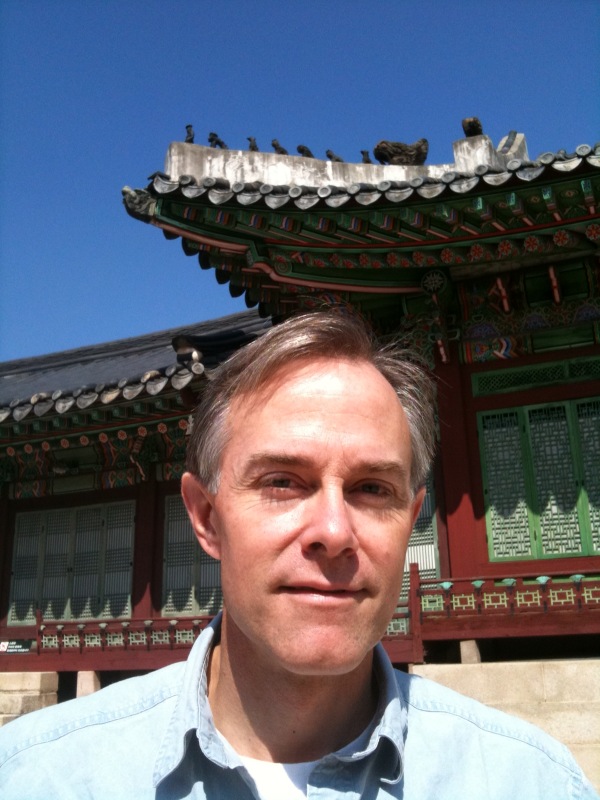UNESCO Second World Conference on Arts Education in Seoul
Theodore Wiprud
June 6, 2010
I was particularly looking forward to the UNESCO conference roundtable on research in arts education – specifically titled “Supporting the Practical Use of Researches: Suggestions to Enhance Practicality and Reliability of Arts Education Researches.” What transpired was intriguing in ways I’d never imagined.
The speakers came from Cuba, Austria, Germany, Zimbabwe, France, and Australia, with a moderator (Dan Baron Cohen) from Wales by way of Brazil. Their understanding of “research” was similarly all over the map – several stressed the idea of involving students in research, for instance, but they didn’t exactly mean drawing up rubrics together.
For instance: Ramon Cabrera Salort, from Universidad de las Artes de Cuba, described five groups of high school students in Berlin who designed and carried out their own research projects. What exactly they were researching became less and less clear. One group decided to give “invisible performances” in a park – taking naps and playing with dolls. Another group pretended to be homeless. Another blocked off a busy commuter footbridge at rush hour. Another went to sleep at a McDonalds. They wanted to know how people would react. Disappointingly perhaps, the citizens of Berlin were mainly tolerant and bemused. The final group – all football players – dressed as women and did get a rise – they documented the insults they received. Nevertheless, they discovered they rather liked walking around in drag. (Let’s run this one by the NEA!)
A more persuasive approach to students as researchers came from Michael Wimmer, from an organization called EDUCULT in Austria. He cited Charles Ives’ The Unanswered Question and Picasso’s line, “I never made a painting as a work of art; it’s all about research” in asserting that the authentic artist’s stance is one of questioning, hypothesizing, discovering. So might the truest aesthetic education be designed as aesthetic research? In one project he described, students created a theatrical event through which audience members would have the experience of being trapped in a school massacre. So how did they collect data? Surveys – nothing particularly creative there. Yet in this presentation, the kids’ main focus of creativity seemed to be the research itself. Rather than receiving instruction in theatre, they were being given room to think like true artists by doing research on their audience. Intriguing, but I doubt this is quite what Ives or Picasso had in mind.
The presentation most directly useful to what we think of as research was from Eckart Liebau from the University of Erlangen-Nurnberg in Germany. Speaking specifically of scientific research (as opposed to arts-based research, such as Herr Wimmer had described), Prof. Eckart noted that almost all existing work looks at the side effects of arts education – impacts on other kinds of learning, on socialization, on attitudes toward school, areas that could equally well be addressed through athletics, for instance. What is unique to arts education? What are the cognitive and other differences among the arts disciplines? He called for tools beyond surveys and videos, for more direct indicators of the mind’s activities; and for designing pragmatic projects that can inform how we actually teach. If only he had methods to go with his clear-thinking approach to the field.
Pragmatism was everything to Robert Malcolm McLaren, from the Zimbabwe Academy of Arts Education. For McLaren, research means understanding and documenting the many “informal” means of arts education in his country. Just as an informal economy has grown to engulf the formal economy in post-colonial Zimbabwe, so informal arts education – many out-of-school-time opportunities, efforts of small cultural organizations, and apprenticeships, many of these in traditional arts – “democratize the top-down model” of school-based arts education. He suggested that research can legitimize a grass-roots cultural movement.
Mr. McLaren’s expansive view of education came like the opening of a window in a stuffy room full of theory and epistemes. How welcome was a quiet comment from our moderator, Dan Baron Cohen, that the next such gathering might do well to include actual artists and educators, and even students, if we want to know what arts education is and what it accomplishes. A noisy ovation erupted – from just a very small corner of the audience, your truly and my New York Philharmonic colleagues.
***************************************************************************************************************
Theodore Wiprud
Director of Education, New York Philharmonic
Theodore Wiprud has directed the Education Department of the New York Philharmonic since October 2004. The Philharmonic’s education programs include the historic Young People’s Concerts, the new Very Young People’s Concerts, one of the largest in-school program of any US orchestra, adult education programs, and many special projects.
Mr. Wiprud has also created innovative programs as director of education and community engagement at the Brooklyn Philharmonic and the American Composers Orchestra; served as associate director of The Commission Project, and assisted the Orchestra of St. Luke’s on its education programs. He has worked as a teaching artist and resident composer in a number of New York City schools. From 1990 to 1997, Mr. Wiprud directed national grantmaking programs at Meet The Composer. During the 1980’s, he taught and directed the music department at Walnut Hill School, a pre-professional arts boarding school near Boston.
Mr. Wiprud is also known as a composer and an innovative concert producer, until recently programming a variety of chamber series for the Brooklyn Philharmonic. His own music for orchestra, chamber ensembles, and voice is published by Allemar Music.
Mr. Wiprud earned his A.B. in Biochemistry at Harvard, and his M.Mus. in Theory and Composition at Boston University, and studied at Cambridge University as a Visiting Scholar.

 blog | AJBlog Central | Contact me | Advertise | Follow me:
blog | AJBlog Central | Contact me | Advertise | Follow me: 

